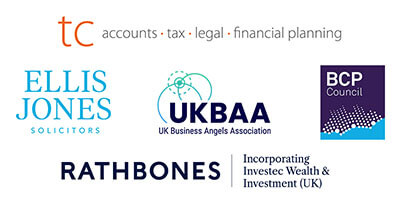The valuation of an early-stage business is often a subject for lively discussion between angels and entrepreneurs, and many consider it less of a science and more of an art form!
Individual Angels cannot take more than 30% of the company’s overall shares under the EIS/SEIS scheme. The British Business Bank reports that “A lot of advisors would argue that for those starting out, the general guiding principle is that you should think about giving away somewhere between 10-20% of equity.”
Higher or lower?
Balancing the need to attract investment, whilst entrepreneurs retain sufficient equity for themselves remains important as time goes on. Entrepreneurs might face multiple funding rounds, which will reduce their share of their business further and further. However, if there are also increases in subsequent valuations, these can financially offset lower shareholdings.
Going lower has its own concerns. A series of smaller raises is an option but carries a potential risk that entrepreneurs may not secure the amount required upfront. Flip the coin and consider how interested an investor might be with little equity.
“An investor needs skin in the game. There’s a natural alignment between the investor and the entrepreneur. The investor wants the entrepreneur to grow and succeed and to get them their exit. The only way they’re going to do that is if they’re adequately incentivised to push, to fight, to drive.” Rod Beer, Managing Director, UK Business Angels Association.
Anthony Rose, Founder & CEO at Seed Legals says, “They [investors] are placing bets on you with the clear knowledge that most of their investments will give zero return. They are exposed to a high-risk/high-potential scenario, hence will likely want a decent slice of equity to get a meaningful return if things go well, and also to have a meaningful level of influence and control of key company decisions if they don’t.
It’s a risky business
The risk is high for angel investors with many start-ups failing. To help mitigate that risk, experienced investors will often look for more to safeguard their investment. This could be in the form of a seat on the board of directors or by increasing the management team to help manage and grow the business.
An investor’s view
Seasoned angel investor and DBA Vice Chairman Frank Guinn says of his experience,
In a ‘career’ spanning almost 15 years in angel investing, I can confirm that the 80:20 rule is pretty well ‘spot-on’. You make money on around 20% of the companies you invest in, but the rest are likely to fail.
SEIS/EIS however provides much tax-free pleasure when you achieve a successful exit and can relieve up to around 80% of the pain when you make a loss.
The five to seven years average time to reach a successful exit is a pretty good rule of thumb too. My best exit came in at just under six years, whereas my worst failure has literally just happened, after a white-knuckle ride of eleven years and four rounds of investment!
Companies that one day – usually during the first year of your investment – look as though they are rapidly heading for intensive care, suddenly defy gravity and start to scale-up rapidly, and conversely, others that successfully hit their forecasts in the early years suddenly blow-up overnight.
That can happen with any business of any size of course, but for me, the following points come high up on my priority list if I’m considering taking a minority stake in an early-stage business:
Focus on local companies, where I can monitor progress at monthly meetings and be on hand to give advice if any existential problems arise.
Go overboard on due diligence, particularly when examining financial forecasts.
Get to know the management team well before I invest. I evaluate if their skill sets and personalities complement each other, and if they have the fortitude to manage the challenges that will almost certainly occur in the early days.
Establish if the team has put their own money into the venture.
Dorset Business Angels receive over 100 business plans from entrepreneurs each year. Plans from a wide range of sectors, from businesses at various points in their early-stage and growth journey. Four pitch events are held across the year at which up to five companies are invited to pitch to investors. Angel investment usually comes from several individual investors, although several Angels could pool funds together to support a company as a syndicate. Formed in 2013, Dorset Business Angels is a member of the UK Business Angels Association and in 2019 signed up to the Investing in Women Code.
For Entrepreneurs sending us your business proposition
To seek investment from our members, our Screening Committee will require you to submit your Business Plan and supporting financials and complete our one-page summary sheet. This is all explained in our detailed guidance on the Entrepreneur Resources page.
This is all part of the process to inform our angel investors. The plans you share with the Screening Committee will be the same as those shared with our member investors therefore it’s very important that you communicate and address the areas we’re talked about here in our blog. Submissions are often rejected as they do not provide the full detailed information requested, as this is required by our members considering investments.
Both raising finance and investing in early-stage companies are highly complex issues, and in all cases, you should seek expert professional advice on your specific needs and circumstances.




